Author Spotlight Interview: Olivia Atwater
Today, we continue our series of Author Spotlight Interviews by chatting to historical fantasy author Olivia Atwater, author of Half a Soul, the first in her planned Regency Faerie Tales Book series. We were extremely grateful for the opportunity to discuss her inspirations, motivations, and what drove her to weave her unique tales.
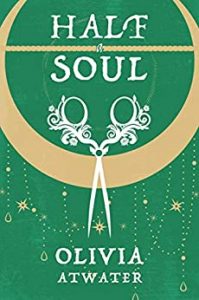 Jane Austen would probably be astonished at the wide variety of ways in which her groundbreaking romances like Pride and Prejudice have been reinterpreted over the years (…and Zombies, anybody?) However, she’d be delighted to see how talented Canadian author Olivia Atwater has approached what’s now become ‘Regency Romance’ – with her beautiful historical fantasies that weave the truth and fantasy of the Regency era into a vivid backdrop for her stories.
Jane Austen would probably be astonished at the wide variety of ways in which her groundbreaking romances like Pride and Prejudice have been reinterpreted over the years (…and Zombies, anybody?) However, she’d be delighted to see how talented Canadian author Olivia Atwater has approached what’s now become ‘Regency Romance’ – with her beautiful historical fantasies that weave the truth and fantasy of the Regency era into a vivid backdrop for her stories.
Subscribers to Hidden Gems picked her first novel, Half a Soul, as one of last month’s top romance reads, and I’m sure fans will love to learn more about her.
HG: Olivia! How would you describe yourself to somebody who isn’t familiar with your writing yet?
OA: Oh dear, that’s a very broad question! But, I’m a very broad person, so I suppose it fits. I’m currently both a writer and a back-end web developer, with a specialty in application security. I’ve always had a very eclectic mindset, though, as I love learning new things. My biography lists a handful of my previous jobs, but I will add that one of my other favorite jobs was working in a haunted house, wearing heavy makeup and scaring football players and their girlfriends. I am therefore qualified to tell you that football players scream in a very satisfying, high-pitched manner when surprised by a creepy clown, no matter how big or intimidating they look!
I currently live in Montreal, Quebec, with my husband and two cats. I love running tabletop games, and have done since I was extremely young. I know what THAC0 is, which should date me a bit to anyone who knows the term. Obviously, I love history as well, and I apply a lot of the same research that I do for my novels to my D&D and Pathfinder games. I find that when you understand history, you understand human motivations as a whole, which makes it easier to build a believable fantasy society.
HG: For a broad question, that was a wonderfully specific answer. I loved what you said about football players. So, what was the path into writing?
OA: I don’t know that there was a specific path into writing for me. I’ve been both a big reader and a big writer since I was very little. I sent my first (terrible) manuscript to a publishing company when I was twelve. I eventually realized I was unlikely to be published quickly enough to make a living at it, so I chose a career that would make me enough money that I could write in my spare time for fun, and I stopped really submitting manuscripts at all.
One day, one of my friends said “you know, this is quite good, why haven’t you just self-published it?”, and it was like a little light-bulb went off in my head. It genuinely hadn’t occurred to me until then. And so, here I am.
I’ll add, for the sake of transparency–there were many more steps involved in self-publishing, and I researched it quite thoroughly before jumping in. It is definitely a business as well as an art, and I think anyone who is interested in pursuing it really must know the business side of things as well.
HG: I was going to say, I think you’ve already reached a level of success that an awful lot of self-published authors would be excited about – but if your journey was anything like mine then it was probably a long and difficult one. I was writing and publishing pretty much non-stop until I had my first hit book. I wandered around for a week like those guys in that movie The Producers wondering: “Where did I go right?”
So, what’s the process of writing for you? Are you a plotter or a pantster?
OA: “Where did I go right?” Hah! I know exactly what you mean! That’s a lot how I felt with this release. I am a plotter inasmuch as I write an outline for the main plot and mostly stick to it. But I leave room for side characters and side plots to develop naturally around that main plot as I go. And I’m always careful to listen to that little voice in my head when it starts telling me that what I had in my outline isn’t working well in execution. More than once, I’ve had to completely redo the second half of an outline because I realized that my characters were intelligent enough to take a different approach to a problem, and I needed to adjust for that.
HG: I think that’s the sign of being a good writer. I found by the time I got to Book 6 in my series I planned out the next 10 simply from the fact that different characters I’ve written about would inevitably have interactions with other characters and it seemed like it was worth telling.
Anyway – I adore the concept of Half a Soul. Where do you even come up with that?
OA: I actually started from a single scene that I had in my head, nearly fully-formed. That scene is one early on, where the main character, Dora, is washing her dress in a fountain outdoors in the middle of a ball. I just had the idea that she was a Regency lady who felt and acted as though she were in a dream, and I knew it was going to be difficult for her because that sort of thing would not do well in an era of strict manners. Once I had that general concept, I built out the rest from there, mostly through copious amounts of research and all the things that research suggested to me. I will say that I meant the book to be even more silly and lighthearted than it is, but once I read a few things about the state of the lower classes during the Regency, I couldn’t just ignore those things and pretend that everything was one big faerie tale—or at least, it had to be a bit more Brothers Grimm and a bit less Disney.
HG: I think that’s really important, though. We try to Disney-fy too much of history.
OA: I agree 100%. When we romanticize history, we aren’t able to learn any useful lessons from it. And there are plenty of lessons to be learned–though which lessons you take away will always depend on who you are and what you focus on. I love history for exploring lessons learned, and I love fantasy for exploring those same lessons through a new lens. I find that the two go together very well, actually.
HG: Is that what drew you to your genre?
OA: Well, I mostly ended up in historical fantasy because it suited this particular oddball idea, which popped into my head almost fully-formed. But I enjoyed writing this book for those reasons, and I will certainly be continuing to write within the genre. I am already partway through Book Two, and discovering that I particularly enjoy undermining otherwise-romanticized aspects of history. Book One ended up exploring the workhouses of London, and the misery and poverty which propped up the more glamorous balls and romances that people normally see in a Regency novel. Book Two has so far focused on the Regency servant class, which was brutally-treated and roundly abused. So, I suppose I will stay within this genre as long as I keep finding things to un-Disney-fy, so to speak!
HG: So, one thing that stood out about your cover was how it wasn’t like mainstream romance, and a WORLD away from the bare, naked manchest romance. What made you choose that, and how has it performed? I think it’s lovely. And definitely sell-able. You just need to look at Sophie Kinsella‘s success to see that you don’t need man-nipple to sell books.
OA: Well, I should definitely qualify my answer first by saying that I have nothing against manchest romances. I have read my fair share of them, and they communicate what they’re about very successfully. But for my part, though I went into Half a Soul expecting to write a standard Regency romance with a bit of magic, I actually ended up writing a clean romance that skewed a little bit young adult, so I needed to communicate that. A manchest would suggest things that just aren’t in there. As to how well it’s performed–I can’t say! I don’t have much to compare it to. It has performed beyond my expectations, at least, and it’s garnered enough attention to have gotten people to read it and say how much they loved what’s inside. By that metric, it’s done exactly what I hoped it would do.
HG: Well, it didn’t get chosen for my blog post at random! People really loved it, and we’d like to think Hidden Gems subscribers have pretty high standards – so you must have been a bit special in their eyes. So, what’s your writing process like? When do you write?
OA: For the most part, I do my best writing when I’m able to hyperfocus for a few days at a time–which is a bit stereotypical, I suppose, since I do the same when I’m deep into programming something. When I was still working four days a week, this meant working hard to get all of my chores and errands out of the way during the work week so that during the three-day weekend, I could go down to the communal reading room in my building and write all day. I’d often write well into the night as well, late enough that I’d completely invert my sleeping schedule and have to re-sort it by Tuesday. I couldn’t do any of this without my husband’s incredible support–he’s been kind enough to handle dinner most evenings–and I don’t have any children to worry about, so I know not everyone is able to manage the same sort of routine. I’ve taken a sabbatical from work for now, so I actually have all day to write and market for the next few months. Ironically, my pre-planned sabbatical actually started on the exact day that everyone else had to start working from home, so it was very surreal. It felt a bit like everyone else had followed me home. The only real difference this has made to my process is that I’m able to invert my sleeping schedule nearly as much as I like. That, and my cats are starting to get cranky with me over my inconsistent routine.
HG: Cats are the real masters of the house, lol. Do you have any routines to get you in the mood? Any music, or anything?
OA: Oh, I always have a playlist associated with everything I write. For Half a Soul, it was mostly classical, instrumental music with just a hint of the strange to it. I’ve noted elsewhere, but one of the songs that always got me into the mood was Agnes Obel’s “Beneath Giant Trees”. That said, there are times when I need to deeply concentrate on the structure of a scene or when I’m doing nitpicky line edits, and music is just too distracting. When that’s the case, I’ll put on some pleasant white noise on my noise-cancelling headphones, like thunderstorm or ocean sounds. It’s mostly just about blocking out other distractions at that point, rather than getting any kind of creative inspiration.
HG: Ha, I totally hear you on those. What’s the biggest thing you’ve learned about writing on this journey?
OA: I’ve written other things before, but this was the first book that when I showed it to other people, they really said “this must be published, it’s fantastic.” And while I think some of that was due to the premise being new and unique, I also prioritized clarity in my writing like never before. My first degree was in technical writing and editing, and I really went painstakingly through every line to be sure that there was no way a reader could ever mistake who was being talked about at any given time, who was performing an action, etc. At first, I worried that I’d overdone it, and that people would get on my case for being such a stickler for always using dialogue tags and lots of proper nouns, but the feedback I got was uniformly the opposite–everyone really felt like the prose was polished and easy to read. So I think what I really took away from this was that “simple” prose is actually very difficult to write, and also, I’m glad I took all of those technical editing classes!
HG: You know, that’s REALLY interesting. I used to be a technical writer and when I edit other people’s stuff my biggest bugbear is lack of clarity – like you’re not sure who was talking to who, or how they progressed from one place to another. In my own writing, I visualize each step – it sounds ridiculous. So, what’s the best advice you’ve ever received about writing?
OA: I think the best advice I’ve ever been given is that well-used cliches are a good thing. If everything about your writing is new and unfamiliar, people will quickly get lost and frustrated with it. But if you start from a place of familiarity–a place that does involve cliches, at times–then you make your differences even stronger by comparison. I do think that helped me sort out how I wanted to handle Half a Soul, because I started from a very familiar premise–a Regency romance, a poor heroine with few marriage prospects, etc–and was able to make the little bits of magic and social commentary stand out when they did show up.
HG: I have interviewed over a hundred authors and I can honestly say that that is the most refreshing and unique thing I’ve ever had anybody say. And I think I totally agree. Okay, so tell me who your favorite authors and book series are.
OA: I think my favorite author of all time is probably Terry Pratchett. I’m in awe of everything about his ability. He regularly handled concepts that would be, in anyone else’s hands, both dark and complex subjects, and somehow made them both fun and simple to read. I have nothing bad to say about Terry Pratchett’s work, and that is quite a feat. Of his books, my favorite would be either Small Gods or else The Wee Free Men. I also really did enjoy J.R.R. Tolkien as a child, and I come to appreciate the themes in his work more and more every day (though obviously, through a modern lens, I have to admit that the near-absolute lack of female characters was at times a bit odd). I am particularly affected by the fact that Tolkien-centred humility, loyalty, and optimism as heroic qualities, even in the absence of martial strength. I like to think we all grow to love and appreciate Samwise Gamgee as we grow older and realize how rare those things really are. I would love to see more fantasy that really embraced that idea, rather than constantly following around the Aragorns of the world.
HG: Cool, I think that’s a really interesting perspective. JRR Tolkien was of an interesting generation, like with his contemporaries Ian Fleming and and Ayn Rand. I kind of like the way he sent it to humility and optimism as strengths, as opposed to the other two which were more self-centered. I apologize. I’m a bit of a nerd.
OA: I think it’s safe to say we’re all nerds here. All two of us.
HG: I grew up in the south of England, where everybody played rugby, so to be the kid who liked swords and sorcery wasn’t very cool. Tolkien and his ilk were the ones who seemed like my family at the time. Although I was a big fan of Ian Fleming as well. So – back to the questions. What would your advice be for any fledgling authors?
OA: Oh, hah! I think we’re on the same page. I brought D&D books to school, and that was the death knell to any coolness I might have had. I had a fantastic gaming group, though, so I didn’t much mind. But to answer your question… let me think.
There’s a lot of often-repeated advice for fledgling authors that’s solid. Write a lot. Edit a lot. Finish the book and write another one, and another one. But the advice that I happened upon and that I don’t hear repeated very often is this: don’t get a job in writing, at least not right away. Get a job in something that will make you a comfortable living so that you can write in your spare time. Programming was not my biggest passion, but once I got into it, I found things to love about it. And the best part by far was having both job security and extra money and vacation to do things like go to writing conferences and buy writing tools that piqued my interest. It’s much less stressful as an author when you don’t have to succeed just to pay the bills. It’s absolutely not a crime to study something you find only so-so interesting so that you can do the thing you really love on the side.
I’ve actually had the chance to give this advice to a few young writers at those conferences that I was able to pay for because of my salary. Unfortunately, I don’t think many (if any) of them really listen. But money just makes everything easier, honestly, and as much as my younger self would have loved to be a full-time writer right off the bat, I think I’m a much better writer now because of everything else I’ve learned and experienced. And food is great. I can’t recommend enough being able to pay for food.
HG: Wow, that resonates so hard.
OA: I’m not a fan of the starving writer. I don’t think we write well when we’re starved.
HG: Okay, so what are you working on right now?
OA: Don’t give me a big head. I’m trying to be more Samwise Gamgee this year, and if I don’t get more humble, that just means I’ll be eating more desserts. I’m currently working on Ten Thousand Stitches, the second novel in the Regency Faerie Tales series. It takes place in the same setting, but it follows different characters. The main character, Effie, is a housemaid for a country estate. Lord Blackthorn, one of the faeries mentioned at the end of Half a Soul, takes an unnatural interest in helping Effie with all of her various troubles. And, as I like to say, the only thing more terrifying than an angry faerie is a helpful faerie. Lord Blackthorn is just not very good at being helpful.
HG: “…the only thing more terrifying than an angry faerie is a helpful faerie…” I love that. I grew up in Cornwall, in England, where they still believe in faeries and give them tributes.
OA: Faeries really ought to be terrifying no matter what the situation is. I think that’s what’s so fascinating about them as a plot element. They’re almost more like forces of nature than they are like human beings. You’re never really happy to see a hurricane, are you? Did you ever leave out an offering of your own, or is that why you really left Cornwall? Did the faeries chase you out?
HG: Hahaha! We called them ‘piskies’ The miners in Cornwall used to eat these things called ‘pasties’ which are like a calzone or an epinade. Half of a folded pastry was filled with beef and onion, and the other half was filled with fruit and jam. The miners held them at the folded edges, and used to toss them to the ‘knockers’ which were the piskies that lived in the mine and made the knocking noises in the darkness nobody could explain.
OA: Oh, I’ve heard that one! That’s neat, that people still do that. I never would have guessed it was still a tradition.
Thanks so much to Olivia for spending time with us – and if you want to check out Half a Soul and more of her writing, you can visit her website, her Facebook Page, Goodreads page, or on BookBub. And, remember, if you subscribe to Hidden Gems Books, you’ll get the opportunity to read books from authors just like Olivia, plus authors from 15 other genres, for FREE.




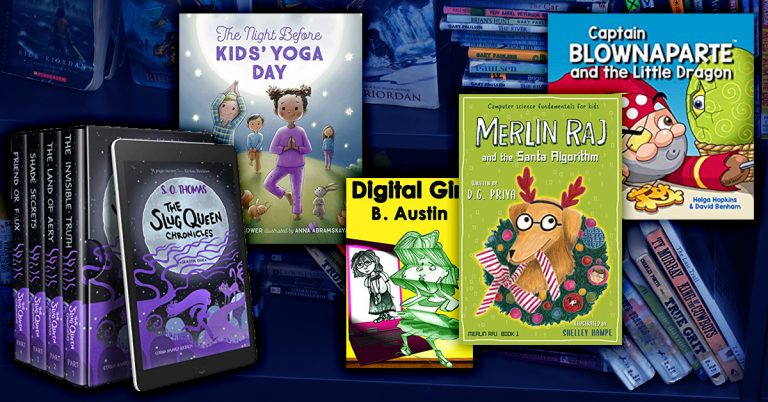
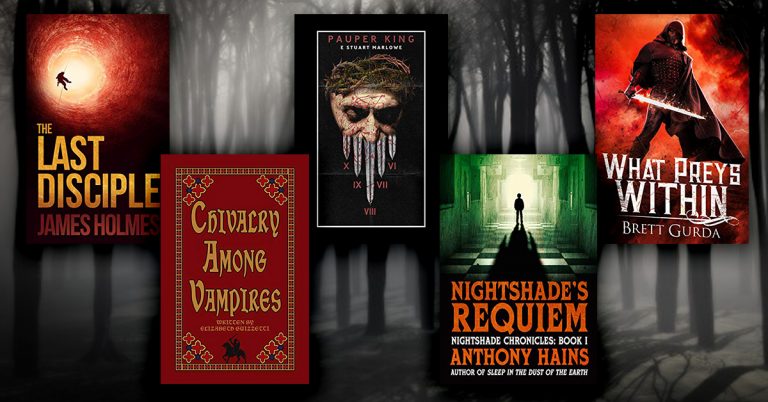




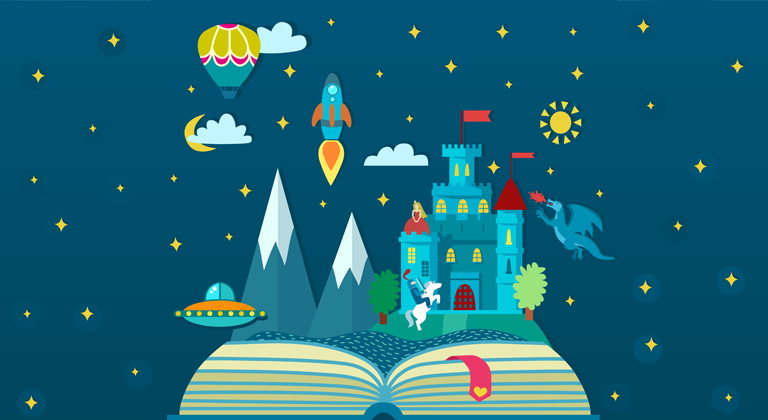
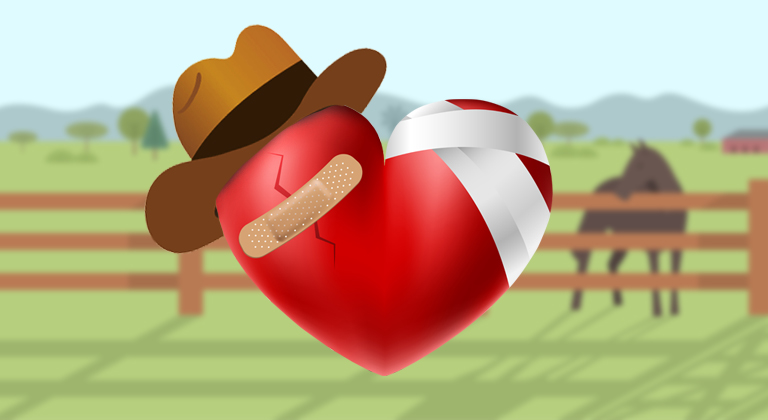
Olivia is always a great read in any context. I too loved, “And, as I like to say, the only thing more terrifying than an angry faerie is a helpful faerie.” I find her thoughts and musings to be brilliant and really enjoyed reading this.
I hope Hidden Gems and other sources like you, continue to support her. She’s a gift to the writing community.